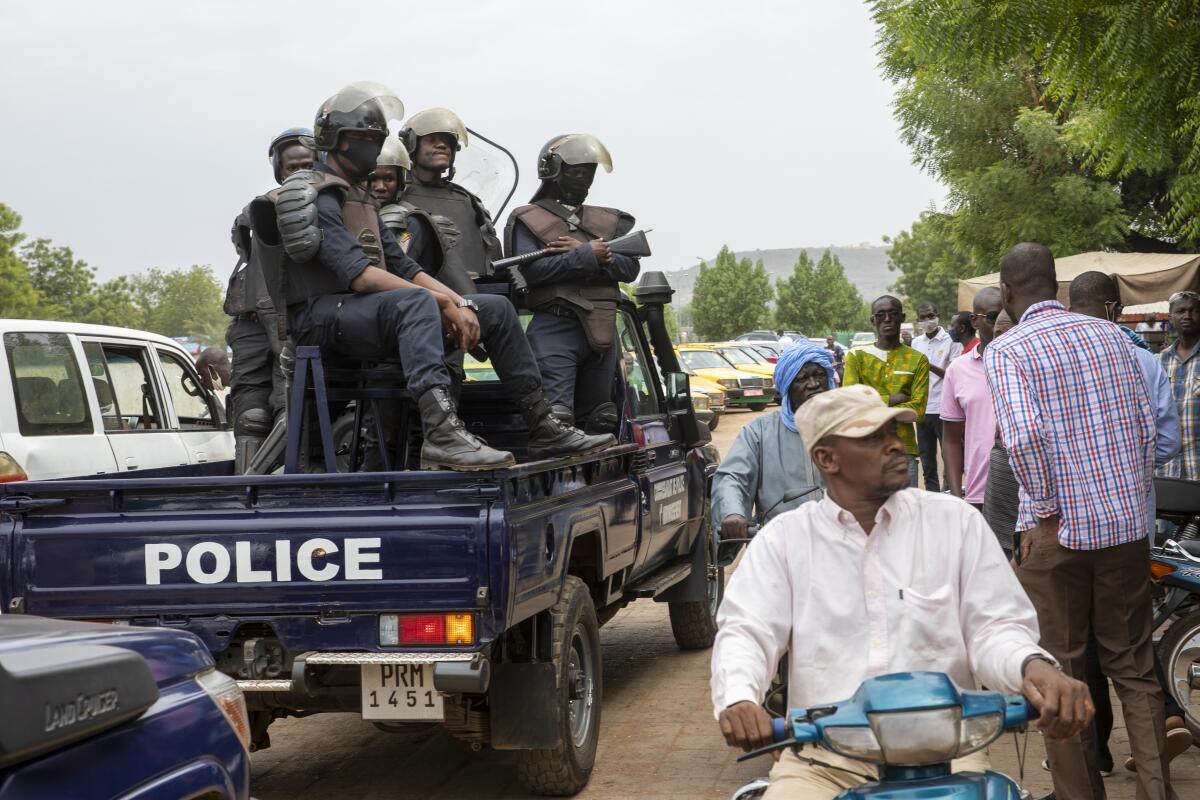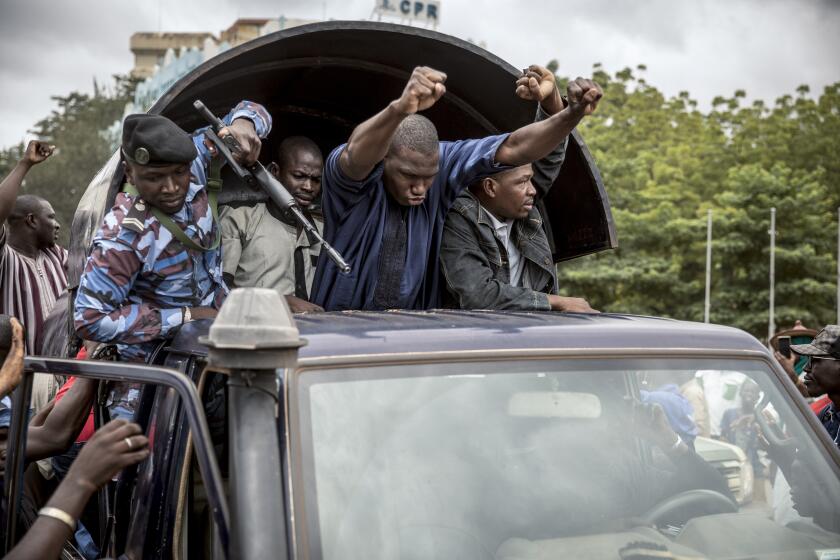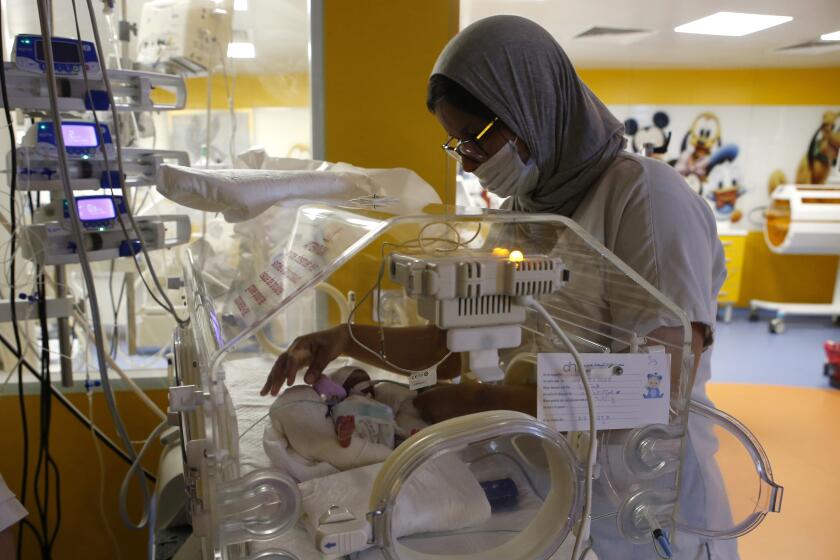Coup leader wrests back control of Mali with president, prime minister under arrest

- Share via
BAMAKO, Mali — Former coup leader Assimi Goita took control of Mali again Tuesday after firing the West African nation’s transitional president and prime minister following their announcement of a Cabinet reshuffle without his permission.
While Goita pledged to press ahead with holding new elections in 2022 as promised, his show of force casts doubt on whether the vote will be held without significant interference by the junta that overthrew the last democratically elected president.
The move also raised concerns that the new political unrest could further destabilize efforts to control Mali’s long-running Islamic insurgency. The United Nations now spends some $1.2 billion annually on a peacekeeping mission in Mali.
President Bah N’Daw and Prime Minister Moctar Ouane were arrested by soldiers Monday and brought to the military headquarters in Kati, a garrison town about 9 miles outside the capital of Bamako. Both men remained in detention Tuesday.
Their arrests prompted an outcry by the international community, which released a strongly worded joint statement warning Mali’s military leaders that their actions could undermine global support for the country. That joint statement made by the African Union, United Nations, the European Union, France and the U.S., among others, called for the immediate release of the president and prime minister.
The West African regional bloc known as ECOWAS, which also endorsed the statement, said Tuesday afternoon that it was sending a delegation to Bamako as the political crisis escalated. The regional body previously threatened the junta with sanctions if it did not install a civilian president and prime minister and shorten the transitional period to 18 months.
The EU went a step further, warning Mali’s military Tuesday that it was “ready to consider targeted measures against political and military leaders who obstruct the Malian transition.”
African and Western leaders have condemned the junta that forced Mali’s president from power, warning the coup was a deep setback that could threaten the battle against Islamic extremism across the Sahel region, where thousands have been killed by jihadists
Goita has served as Mali’s vice president since the transitional government was formed in September after his coup d’etat, despite calls from the international community for an entirely civilian-led transition.
In announcing the removal of the president and prime minister of the transitional government, the military also said that it would be relieving others from their duties, including “everyone implicated in the situation.”
Still, the military insisted: “The transition is following its normal course and elections will be held as anticipated in 2022.” Following international pressure last year the junta had promised to organize that vote by next February, 18 months after the coup shook the country.
The overthrow of democratically elected President Ibrahim Boubacar Keita came amid mounting military casualties in the fight against Islamic militants linked to Al Qaeda and Islamic State.
Islamic extremists took control of major towns in northern Mali after the 2012 coup. Only a 2013 military intervention led by former colonial power France pushed extremists out of those towns. France and a U.N. force have continued to battle the extremist rebels, who operate in rural areas and regularly attack roads and cities.
The arrests of N’Daw and Ouane on Monday came about an hour after a new Cabinet was announced. Notably, it did not include Interior Security Minister Modibo Kone or Defense Minister Sadio Camara, both supporters of the military junta. No reason was given for their exclusion, but the move suggested mounting divisions within the transitional government.
Mali’s Ministry of Health says a Malian woman has given birth to nine babies after expecting only seven.
“The decision to reshuffle the Cabinet was taken in light of mounting criticism at the slow pace of reform and growing anger surrounding the prominent role given to the army” in the Cabinet, said Alexandre Raymakers, senior Africa analyst at risk consultancy Verisk Maplecroft. “Although the officers were in turn replaced by other members of the military, both Kone and Camara are widely viewed as pillars of the August 2020 coup.”
N’Daw and Ouane were sworn in last September after the ruling junta agreed to hand over power to a civilian transitional government under growing international pressure.
The junta had grabbed power a month earlier after mutinous soldiers encircled Keita’s home and fired shots into the air. Keita later resigned on national television under duress, saying he did not want blood to be shed in order for him to stay in office.
More to Read
Sign up for Essential California
The most important California stories and recommendations in your inbox every morning.
You may occasionally receive promotional content from the Los Angeles Times.












